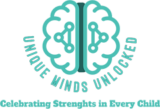Discover a curated collection of websites and tools designed to support parents and caregivers of children with ADHD, dysgraphia, and dyscalculia. This page connects you to trusted resources offering expert advice, practical strategies, and innovative solutions to help your child thrive. Explore links to organizations, educational platforms, and communities dedicated to empowering children with unique learning strengths.
Graph paper is a type of paper marked with a grid of fine lines, forming small squares that serve as guides for drawing, writing, and organizing information to scale. Commonly used in math, it helps with plotting points, studying functions, and managing multi-digit calculations by keeping numbers aligned. It is particularly helpful for kids with dysgraphia and dyscalculia to align their numbers when working on math problems. Additionally, graph paper can be used for creative and practical activities, like creating crosswords, mazes, or graph art, and serves as a helpful writing aid for children learning letter formation and spacing. You can get free printable graph papers here.
Khan Academy Kids is an educational app designed for children aged 2-8, offering a fun, interactive way to learn foundational skills in subjects like reading, math, language, and social-emotional development. Created by early learning experts in collaboration with Stanford, this free app includes thousands of activities, books, songs, and videos to keep young learners engaged. The app features adorable characters that guide kids through age-appropriate content, promoting curiosity and independence.
Khan Academy Kids is also ad-free and safe, providing parents with resources to track progress and support learning, making it an ideal tool for at-home or supplemental education. Additionally, its adaptive approach and multi-sensory learning activities can be particularly helpful for kids with dysgraphia and dyscalculia, offering practice and support in areas like, number sense, and cognitive processing in a supportive, game-like environment.
The Learning House Inc. is a family-owned business providing educational resources to schools, homeschoolers, and parents across Canada. Since 1994, they have grown to offer a wide range of carefully selected curriculum and materials for students from Pre-K through Grade 12, sourced from over 50 publishers.
With decades of homeschooling experience, including teaching children with learning differences, the House family has curated specialized resources to support diverse learning needs. Their goal is to equip families with the tools they need to help every child thrive in their educational journey.
If you’re in high school, college, or university and identify as someone who learns differently, you may find The Neurodiversity Alliance, or “ND Alliance,” incredibly helpful. It’s the largest network of neurodiversity-focused clubs on campuses across the USA, created by students for students like you.
Through their online community and mobile app, you can access tools to start your own neurodiversity club on campus. They also provide scholarships, leadership opportunities, and national events—all designed to build community, enhance leadership skills, offer peer-to-peer support, and raise awareness for the 1 in 5 students who think and learn differently.
The Ontario Human Rights Commission (OHRC) provides comprehensive guidelines on the rights of children with learning disabilities to ensure they receive equitable access to education. These guidelines emphasize the responsibility of schools and educators to provide accommodations and support tailored to individual needs, fostering an inclusive learning environment. For more information, visit the OHRC’s resource on students with learning disabilities.
